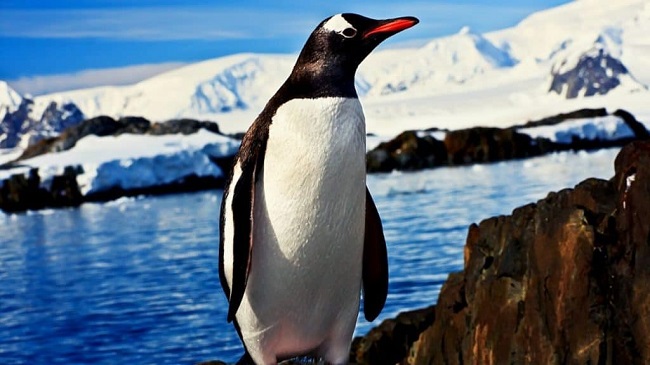Having a Penguin As A Pet may seem like a fascinating and unique idea, but it’s important to understand that Penguins are wild animals that have specific needs and requirements.
In this article, we will delve into the topic of having a Penguin As A Pet, exploring the challenges and considerations involved.

Can You Really Have a Penguin As A Pet?
Can we keep a Penguin As A Pet:
Read Also:
Legal Considerations
Before considering a Penguin As A Pet, it’s crucial to research and understand the legalities surrounding Penguin ownership. In most countries, Penguins are protected species, and it is illegal to keep them as pets without proper permits or licenses.
It’s essential to consult local wildlife authorities and comply with all regulations and permits to ensure the ethical and legal ownership of any animal.
Habitat Requirements
Penguins are marine birds adapted to living in specific environments, such as icy cold regions or temperate coastal areas. Recreating their natural habitat in a domestic setting is virtually impossible and often unethical.
Penguins require access to large bodies of water, ample space for swimming and diving, specialized filtration systems, and controlled temperatures that mimic their native environment.
Social Needs
Penguins are highly social animals that live in large colonies in the wild. Attempting to keep a Penguin as a solitary pet can lead to significant stress and behavioral issues. Providing appropriate socialization and companionship for a Penguin is a complex task that most individuals cannot fulfill.
Specialized Diet
Penguins have unique dietary needs, mainly consisting of fish, squid, and krill. It can be challenging and costly to obtain and provide the necessary diet for a Penguin in a domestic setting. Meeting their nutritional requirements and ensuring a balanced diet is crucial for their health and well-being.
Expert Care and Veterinary Attention
Penguins require specialized care from experienced professionals. They have specific health considerations, including susceptibility to certain diseases and parasites. Finding a qualified veterinarian with experience in avian medicine can be challenging and costly.
Conservation and Ethical Considerations
It’s important to recognize that Penguins are wild animals that play a vital role in their natural ecosystems. Keeping them as pets can contribute to the illegal wildlife trade and disrupt conservation efforts.
It is crucial to prioritize the well-being and conservation of Penguin populations in their natural habitats rather than attempting to keep them as pets.
The Reality of Keeping Penguins as Pets
Specialized Enclosures
Creating a suitable and safe enclosure for a pet Penguin is a significant challenge. It requires a large space with access to a pool or body of water for swimming and diving.
The enclosure must be well-maintained with proper filtration systems to ensure water quality. Maintaining the appropriate temperature and humidity levels can be demanding and expensive.
Behavioral Needs
Penguins are highly active animals that engage in complex behaviors such as swimming, diving, and social interactions. In a domestic setting, replicating their natural behaviors can be difficult.
Limited space and environmental constraints can lead to frustration and behavioral problems in captive Penguins.
Lifespan and Commitment
Penguins are long-lived creatures, with lifespans ranging from 15 to 20 years or more in captivity. Owning a pet Penguin requires a long-term commitment to their care and well-being.
Consider the implications of caring for a Penguin throughout its entire lifespan, including financial responsibilities and lifestyle adjustments.
Cost Considerations
The cost of owning a Penguin goes far beyond the initial purchase. The expenses include constructing and maintaining the appropriate enclosure, providing a suitable diet, veterinary care, and ongoing maintenance costs.
These expenses can be substantial, making Penguins an impractical pet choice for the average person.
Expertise and Experience
Successfully caring for a Penguin As A Pet requires extensive knowledge and experience in Penguin husbandry. It’s crucial to understand their behavior, dietary needs, habitat requirements, and health considerations.
Working with professional institutions and experts in Penguin care is vital to ensure the well-being of the animal.
Environmental Impact
Keeping Penguins as pets contributes to the demand for capturing and breeding them for the exotic pet trade. This can have detrimental effects on wild populations and their natural habitats.
Supporting conservation efforts and promoting responsible tourism or education programs that focus on Penguin conservation is a more ethical and sustainable way to appreciate these remarkable creatures.
The Alternative: Appreciating Penguins Ethically
Rather than attempting to keep Penguins as pets, there are alternative ways to appreciate and learn about them responsibly:
Visit Zoos and Aquariums: Many accredited zoos and aquariums have exhibits dedicated to Penguins, offering educational and immersive experiences.
Support Conservation Organizations: Contribute to reputable conservation organizations that work towards protecting Penguin species and their habitats.
Educate Yourself and Others: Learn about Penguins through books, documentaries, and educational programs. Share your knowledge and promote awareness of Penguin conservation.
Participate in Ecotourism: Engage in responsible ecotourism activities that offer opportunities to observe Penguins in their natural habitats without causing harm to the animals or their environment.
By appreciating Penguins responsibly, we can contribute to their conservation and well-being while fostering a deeper understanding and respect for these magnificent creatures.
Read Also:
Conclusion
While the idea of having a Penguin As A Pet may be appealing, it is essential to consider the legal, ethical, and practical aspects involved. Penguins are complex creatures with unique needs that are difficult to meet in a domestic setting.
Instead of attempting to keep Penguins as pets, it is advisable to support conservation efforts and learn about these fascinating animals through responsible and ethical means, such as visiting zoos, aquariums, or engaging in educational programs.
























